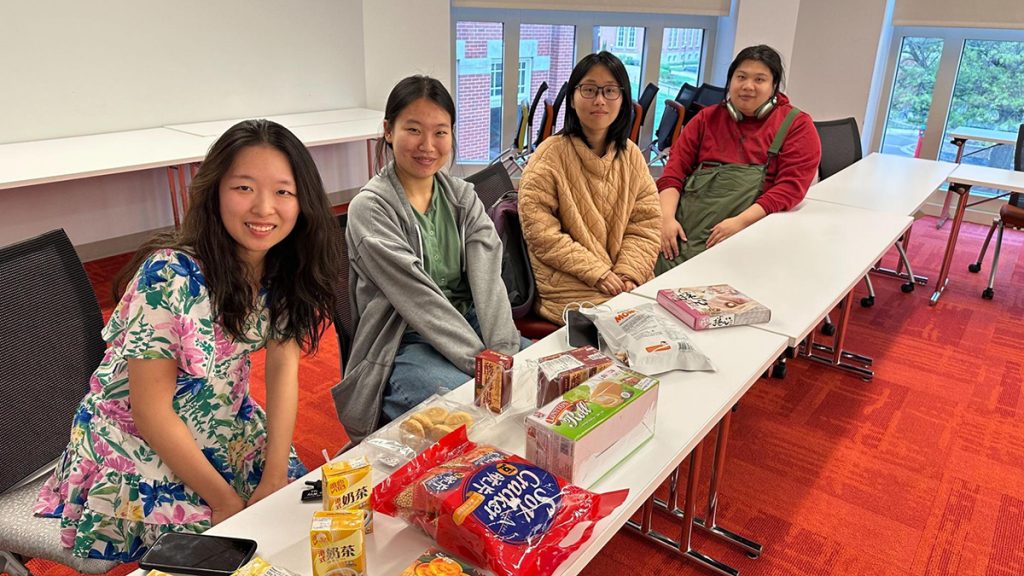
Bilingual editors (left to right) Heather Wang, Muyang Cao, Yilan Jin and Ziyi Wei sit at a table filled with snacks. Photo: Will Lager | RJI
Making your project sustainable beyond your departure
Training, transitions and support
Life moves forward like jumping into another job, graduating from college, or moving to another country. However, the project you have built at your current workplace cannot always go with you. it often has to stay in the newsroom and community you built it for. How to make that project sustainable after you leave may be the biggest obstacle you have to face before moving on.
The importance of sustainability
Communities rely on journalism to be consistent and the sustainability of new projects supports that, it builds on the public trust you earned. This is especially true when engaging audiences from minority groups or other underserved communities. For example, I built a WeChat newsletter for the Chinese community in Mid-Missouri and advertised the channel would deliver accurate information in Mandarin. People subscribed to the channel and grew to rely on it. If news distribution stops when I leave, they may feel ignored since local outlets here don’t deliver news in Mandarin.
Here are a few tips to maintain trust while keeping your community informed.
Host a community event and tell your audience that you are leaving
Being genuine is always the best strategy when it comes to community engagement. Tell your audience you are leaving, but that the project won’t end after you leave. Introduce the next step for the future of the resource. For example, who is going to be responsible for the program? Are there any upcoming events? When will the transition be made?
Empowerment through sharing: delivering your unique skills to others
Unique skills can be tech skills or language ability, either of them are hard to learn in a short time. You may want to ask around your colleagues and/or talk to your boss about hiring or training someone with enough time to transition your work to them comfortably.
For the WeChat project, I found a couple of Chinese journalism students who are willing to take on the WeChat channel. As they are busy with schoolwork, I recommended that each person take on one specific part of the project, rather than one person trying to handle everything on their own. Also, although I am leaving, I won’t disappear. I will check in with them regularly and provide help when needed to make the transition smoother for them and readers.
Frozen your projects? Keep in touch with your colleagues
Language barriers can add a layer of complication. A person who can speak a certain language leaving usually means the project may need to be put on hold until a new person with those same language skills can be trained or hired. The person you are looking for may show up several months or a year later. If they are still interested in the initiative, they may restart it when the right person appears. This opens up the possibility of engaging the community for someone to take up the reins like I did for the WeChat channel.
Read more about the WeChat project in our previous article: How to create newsletter to serve local Chinese communities

Comments